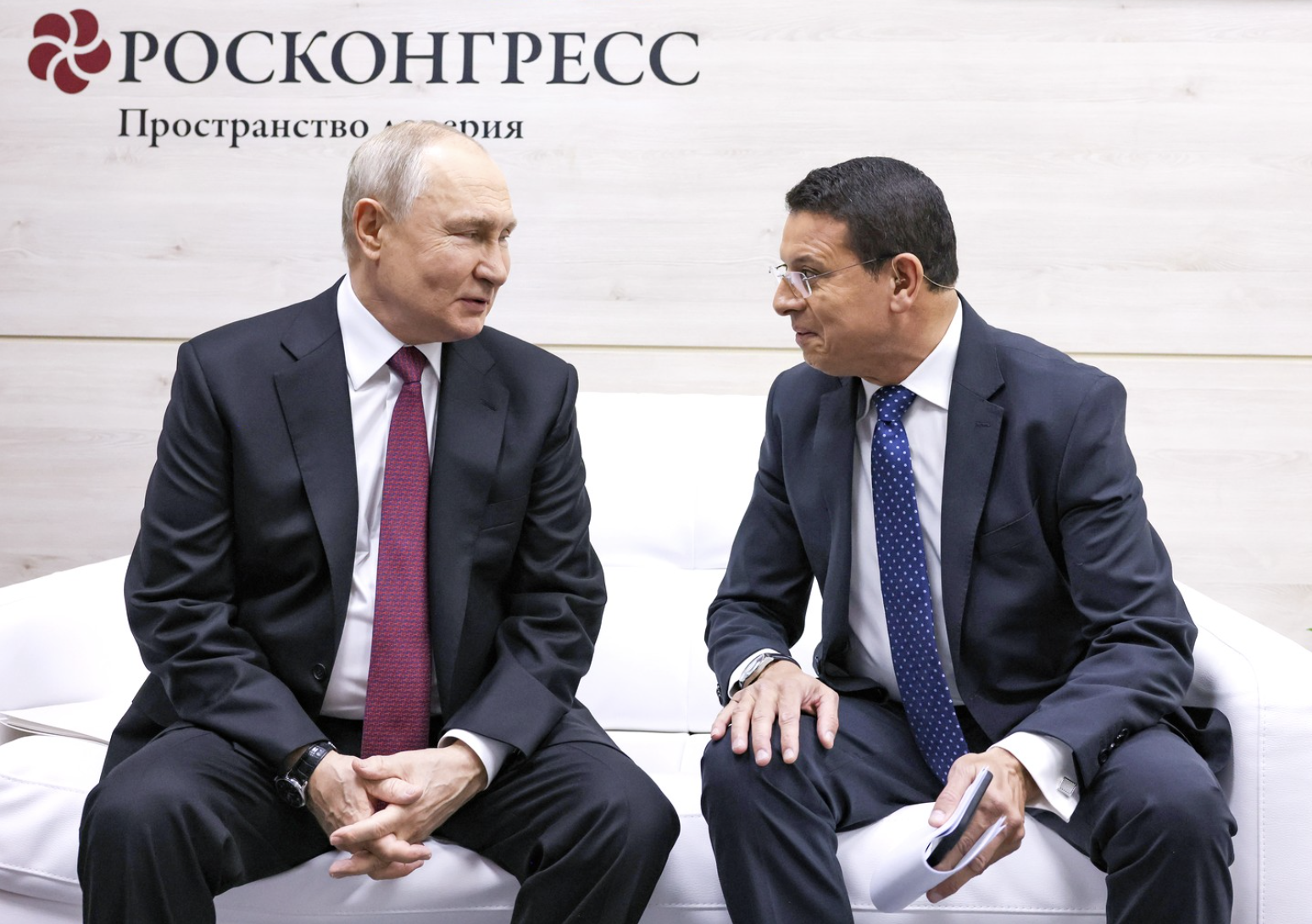Russia and The Resilience Gap
The West Misreads Russia’s Resource Power — at Its Own Cost: President Vladimir Putin (left) and Moderator Amro Abdelhamid (right) at the plenary session of Russian Energy Week. © Under Licence: RTK
❮ VSG News
▦ OPINION Arno Saffran, Tue 18 Nov, 2025 While Washington debates, Moscow is securing the one thing every economy needs
The global race for critical minerals has revealed a fundamental truth: economic resilience is the new frontier of national strategy. While much attention has focused on China's dominance and Western efforts to catch up, another major player is quietly positioning itself on the chessboard - Russia. The complex that comes from accepting a bilateral solution has its origins in the Urals, with contention for minerals the accepted play.
President Putin's recent directive to develop a comprehensive roadmap for rare earth development by December 1st represents more than just domestic policy. It signals Russia's recognition that in today's fragmented global landscape, mineral sovereignty equals strategic sovereignty.
The Reality of Russia's Position
Yes, Russia is late to the party. With current production representing less than 1% of global output, Moscow faces significant challenges. The quality of known reserves remains uncertain, and the technological gap in processing and separation cannot be ignored.
Yet the fundamentals are compelling. Russia possesses the world's fifth-largest rare earth reserves, estimated at 3.8 million tonnes. More importantly, Russia brings to the table what few other nations can: a long history of metallurgical expertise, established mining infrastructure, and geographic proximity to both European and Asian markets.
A Strategic Choice, Not Just a Commercial One
The question of whether Russia will orient its rare earth strategy toward China or the West misses the larger point. In today's multipolar world, the most successful nations will be those that maintain strategic flexibility.
Russia's announcement that it's "ready and willing to work with foreign partners" should be taken seriously. As CRU's analysts correctly note, mining is the easy part - it's the processing technology and market access that determine long-term success. This is where international partnerships become crucial rather than optional.
The Western Dilemma
The current geopolitical climate creates complications, but not insurmountable ones. The United States' own critical minerals strategy acknowledges the need for diversified supply chains. Russia's reserves represent exactly the kind of diversification that could benefit Western industries seeking alternatives to Chinese dominance.
The reality is that critical minerals transcend traditional political alignments. Electric vehicles, wind turbines, and advanced electronics don't care about geopolitical tensions - they simply require rare earths. As global demand soars and existing supplies face increasing pressure, pragmatic cooperation may prove inevitable.
A Path Forward
What's needed now is what I would call "pragmatic engagement" - finding ways to collaborate on specific projects while acknowledging political differences. This could take multiple forms:
Joint ventures focused specifically on processing technology transfer
Third-country partnerships that provide market access while managing political risk
Academic and research cooperation to improve extraction and separation efficiency
Russia's rare earth roadmap, when completed, will reveal much about Moscow's strategic intentions. But it should also prompt serious discussion in Western capitals about whether current approaches to mineral security are adequate for the challenges ahead.
The nations that succeed in this new landscape will be those that combine strategic vision with pragmatic flexibility. Russia's late entry into the rare earth arena isn't just a challenge - it's an opportunity for all nations serious about building resilient, diversified critical mineral supply chains.
How relevant and useful is this article for you?
★ ★ ★ ★ ☆ 21
ABOUT THE AUTHOR(S)
— Arno Saffran
Arno developed his approach through roles in client development (KPMG) and strategic commercial engagement (affiliated with advisories including Hakluyt), focusing on complex industrial and energy sectors.
VSG works across the extractive value chain, positioning people who form the critical bridge to early-stage relationships and commercial access in complex markets.
